| | | | | | | Presented By Equinor | | | | Axios World | | By Dave Lawler ·Oct 18, 2021 | | Welcome back to Axios World. - Tonight's edition (1,790 words, 7 minutes) takes off from Sudan with stops in Central Europe and Japan.
- Thanks for being a reader. If you enjoy this newsletter, share it with a friend.
Situational awareness: Special Representative for Afghan Reconciliation Zalmay Khalilzad has stepped down and will be replaced by his deputy, Thomas West. | | | | | | 1 big thing: Scoop... U.S. envoy heads to Sudan as crisis heats up |  | | | The sit-in in Khartoum. Photo: Mahmoud Hjaj/Anadolu Agency via Getty | | | | U.S. envoy for the Horn of Africa Jeffrey Feltman will visit Khartoum this week amid what Prime Minister Abdalla Hamdok has called the "worst and most dangerous" crisis of Sudan's transition to democracy, two sources with direct knowledge tell Axios. Driving the news: Roughly 2,000–3,000 people had joined a sit-in in Khartoum as of this afternoon, per Reuters, after protesters massed over the weekend to call on the military to bring down the government. The protests came just four weeks after a failed military coup. - Larger pro-democracy protests are expected on Thursday.
The big picture: After a mass uprising toppled dictator Omar al-Bashir in April 2019, a joint military-civilian council took power to preside over a 3½-year transition to democratic elections. - But the current turmoil is exposing tensions between the civilians and the generals and raising the possibility of a return to military rule.
- Leadership of the ruling council is due to pass from Gen. Abdel Fattah al-Burhan to a civilian in the coming months, though the exact timeline is disputed.
- A blockade in eastern Sudan led by a tribal leader who is also demanding the government be dissolved is further fueling the crisis.
The Biden administration has thrown its weight behind Hamdok and the civilian leadership, with Secretary of State Tony Blinken tweeting in support of Hamdok on Saturday and national security adviser Jake Sullivan calling the prime minister after the coup attempt and issuing a warning against any attempts to thwart the transition. - Feltman will arrive in Khartoum later this week for his second visit in three weeks. He also called Hamdok and Burhan last week to stress "the importance of adhering to the transitional order." The State Department declined to comment on the visit.
- The U.S. removed Sudan from the State Sponsors of Terrorism list after Bashir's ouster and has promised aid and to help reintegrate the former pariah state into the global economy — all of which gives Washington leverage.
The other side: Key regional actors oppose the democratic transition. - Egypt has been deepening its engagement with the Sudanese military, while the UAE and Saudi Arabia are allied with the Rapid Support Forces, a powerful paramilitary group that is also vying for power in Khartoum, says Yezid Sayigh, who runs the Carnegie Endowment's program on Civil-Military Relations in Arab States.
Behind the scenes: The divisions aren't just between the civilians and the military, but also within those camps. - "The coup attempt opened the door for discord, and for all the hidden disputes and accusations from all sides, and in this way we are throwing the future of our country and people and revolution to the wind," Hamdok said on Friday.
- "It's the tensions, lack of consensus on really personal and ideological grounds between the civilians that have contributed to this opening," says Joseph Tucker, a Sudan expert at the U.S. Institute of Peace.
The bottom line: Sudan is having the most open and vibrant debate since independence about the roles of the state, of religion and of the armed forces in politics and the economy, Tucker says. - "I think there is still consensus among Sudanese that there is no going back to the way things were under the Bashir regime," he adds.
- But the path to whatever comes next is still deeply uncertain.
|     | | | | | | 2. Interview: Why the Poland crisis is existential for the EU | 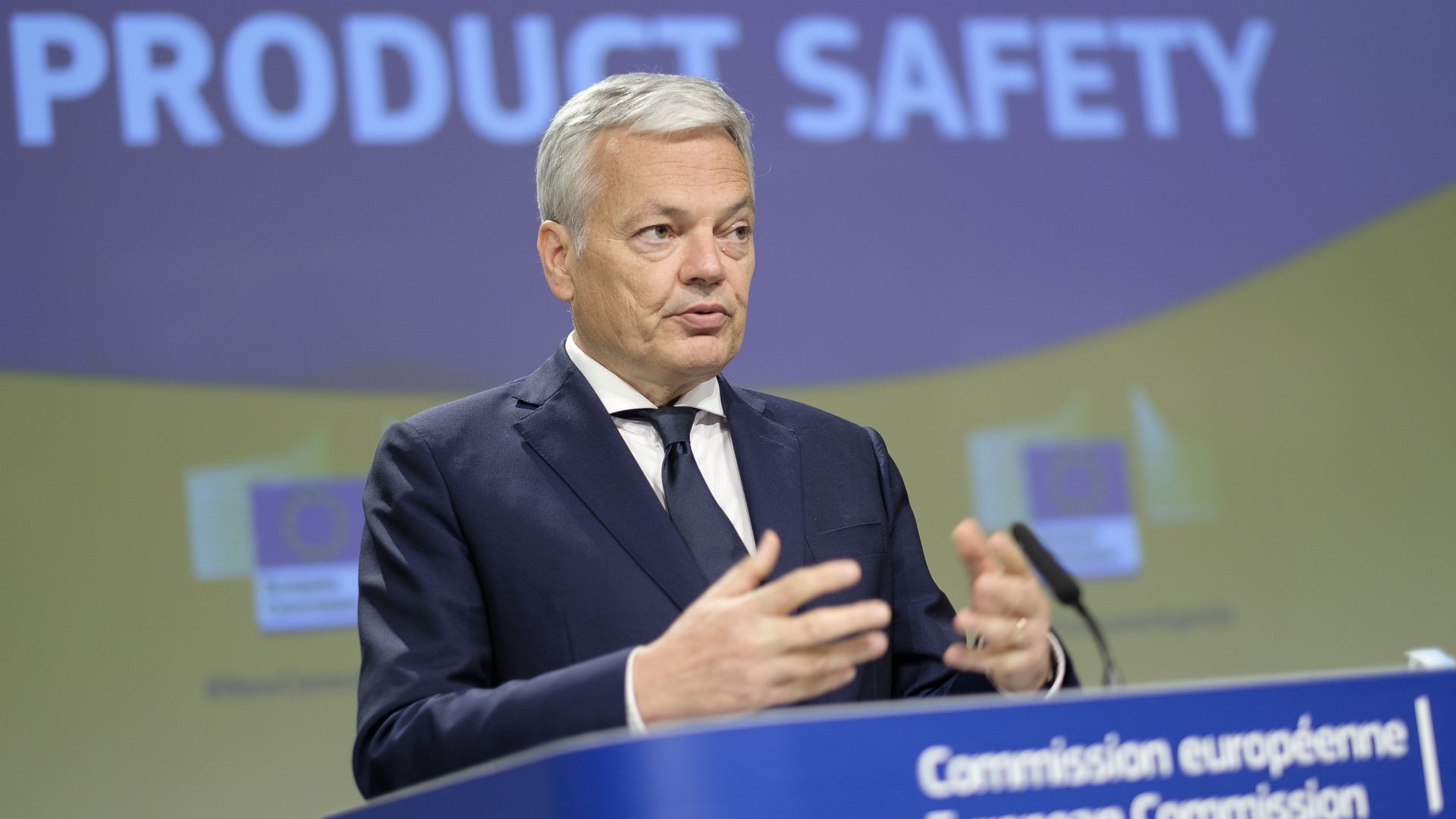 | | | Didier Reynders. Photo: Thierry Monasse/Getty Images | | | | Poland and Hungary have forced a moment of reflection on the EU, similar to the one in the U.S. after the Jan. 6 insurrection, EU Justice Commissioner Didier Reynders told Axios in an interview. What he's saying: "During many years, we have had in our minds that it was granted that if you are a member of the EU, of course you apply the rule of law, you have full respect for democracy, fundamental rights and so on — maybe with some concerns but with a real intention to adapt your legislation to be in full compliance [with EU law]." - "But it's not granted," Reynders says. Thus, Brussels must react strongly.
- "We are determined to use the best efficient tools at our disposal to put pressure, but… we don't have the same timeline as Twitter," he said.
Driving the news: A ruling from Poland's constitutional tribunal — stacked with loyalists of the populist ruling party, Law and Justice — gave Polish law precedence over EU law in some cases, challenging one of the bloc's fundamental principles. - Hungary's far-right prime minister, Viktor Orbán, has also repeatedly stuck his finger in the eye of Brussels while eroding his country's democratic institutions.
- Because the EU operates by consensus, each can block attempts to punish (or expel) the other.
But the EU now has a new tool that ties COVID recovery funding to respect for the rule of law in member states. - Hungary and Poland are challenging that rule in the courts, recognizing that they stand to lose billions of euros.
- Reynders said a decision on whether to trigger it will come soon.
Meanwhile, Orbán will face a united opposition for the first time in elections next spring after an unprecedented primary election made center-right mayor Peter Márki-Zay the consensus pick of all six major opposition parties. - And in Poland, tens of thousands of people gathered last weekend to demonstrate against the court's ruling and in favor of the EU.
|     | | | | | | 3. State of the outbreak: Where the U.S. fell behind |  Data: Kekst CNC; Chart: Danielle Alberti/Axios The U.S. hit a wall that other rich countries avoided in terms of convincing skeptical people to get vaccinated, suggests new data provided to Axios by Kekst CNC. Breaking it down: Here's how the percentage of adults willing to get vaccinated changed between May and September. - France: 69% → 84% (+15%)
- Japan: 70% → 87% (+17)
- Germany: 78% → 88% (+10)
- U.S.: 76% → 79% (+3%).
- The U.K. (90% → 91%) and Sweden (84% → 88%) were already far ahead.
More key findings: - Respondents in all six countries had previously tended to believe the government should prioritize stopping the spread over protecting the economy, but that gap has narrowed dramatically in the U.K. and significantly in the U.S. since May. In France and Germany, respondents are now evenly split between the two.
- Between 72% (France) and 87% (Japan) of respondents who are already vaccinated will get a booster when available.
- 44% of Americans say they would cut off friends who aren't vaccinated, easily the highest among the six countries.
Latest headlines: 1. Pope Francis called on pharmaceutical companies on Saturday to release patents to make COVID-19 vaccines more accessible to the poor. - Between the lines: Moderna is under fire for not doing enough to vaccinate the world, particularly low-income countries — and the Biden administration is being criticized for not doing enough to force Moderna's hand, Axios' Caitlin Owens reports.
2. Italy began enforcing one of the world's strictest workplace vaccination policies on Friday, risking protests and worker strikes, Axios' Noah Garfinkel writes. 3. The WHO estimates that only 1 in 7 cases are being detected in Africa. - What to watch: Many African countries have been focusing on treating severe cases as they arrive, per the report, but more access to testing could allow more focus on detection.
4. China is still trying to keep COVID out entirely, rather than control it — which has major implications for its politics and economic recovery, the Economist notes. |     | | | | | | A message from Equinor | | How Equinor is becoming a leader in America's offshore wind industry | | |  | | | | Equinor plans to power 2,000,000 homes in New York with homegrown, renewable energy — that will also boost the economy and generate jobs. With a net-zero target for 2050, Equinor is pursuing the development of the Empire Wind and Beacon Wind offshore wind projects in the U.S. | | | | | | Bonus: Where in the world? | | Screengrab via Apple Maps Today we're visiting an island that's best known for one short-term resident, who moved there in 1814. Hint: The folks who sent him there really should have picked someplace farther away (and did the next time around). Scroll to the bottom for the answer. |     | | | | | | 4. China's missile launch is no "Sputnik moment" | 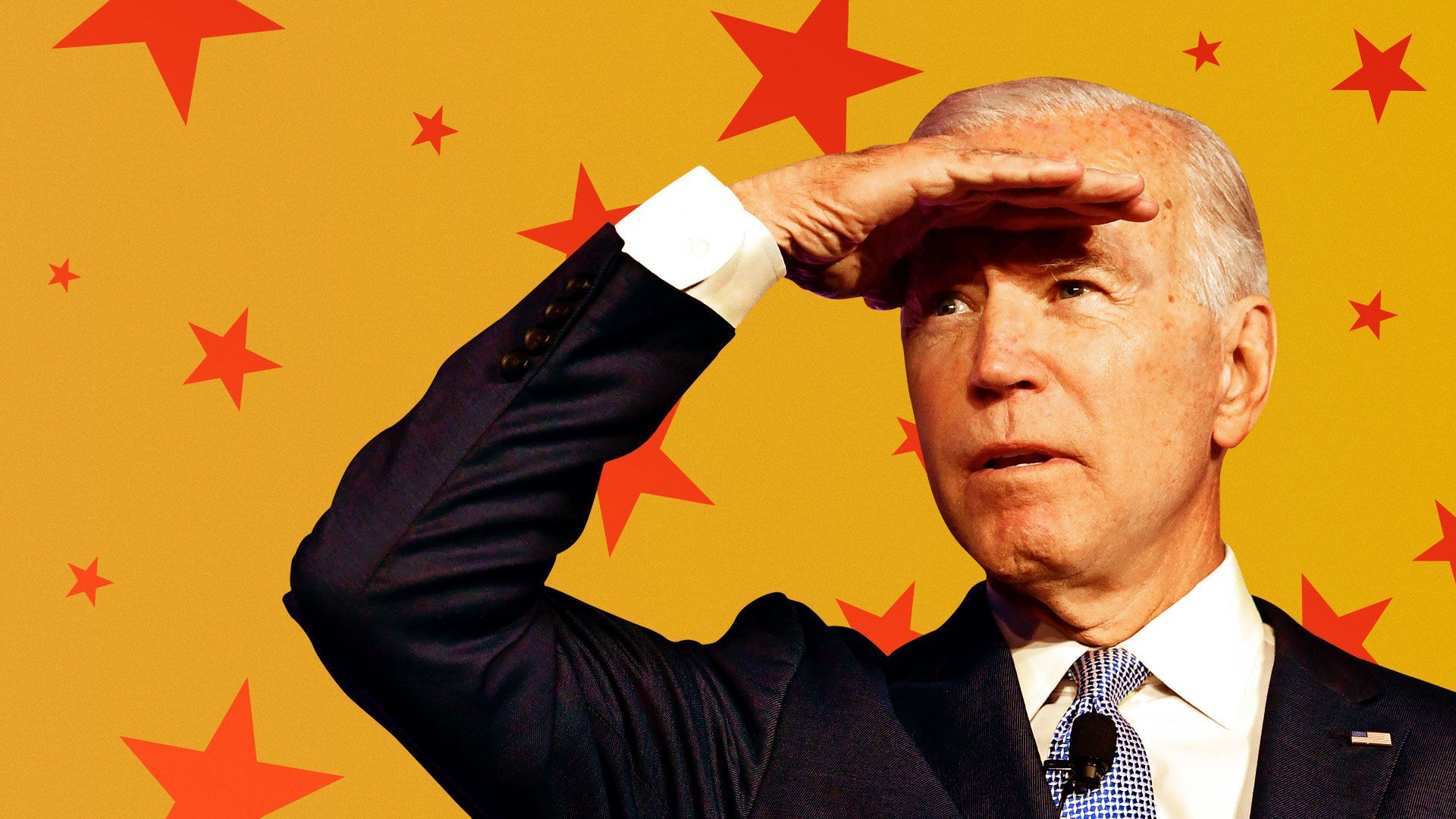 | | | Photo illustration: Eniola Odetunde/Axios. Photo: Frederic J. Brown/Getty Images | | | | A report in the FT this weekend about China's "astounding progress" on nuclear-capable hypersonic missiles triggered fervent speculation about a potential "Sputnik moment" in a budding U.S-China cold war, Axios' Zach Basu writes. What's happening: China reportedly launched a rocket in August equipped with a hypersonic glide vehicle, which circled the globe before speeding down from low-orbit space and missing its target by about two-dozen miles. Reality check: Several experts told Axios the missile launch was a twist on a technology that's long been available to the U.S. - "The point about Sputnik is that the Soviets had beaten us to the punch, they put the first satellite up," said Joshua Pollack, a nuclear proliferation expert at the Middlebury Institute of International Studies. "Weapons payload aside, this is old hat for the United States."
- "The capabilities that they've demonstrated are not beyond our capabilities," said Abraham Denmark, the outgoing director of the Wilson Center's Asia program. "That's why this isn't Sputnik — they're not doing something we couldn't do."
But that doesn't mean the test, which reportedly caught U.S. intelligence by surprise, isn't concerning. - China, like Russia and North Korea, is diversifying its nuclear delivery capabilities in order to undermine U.S. missile defense systems, ensuring that America remains vulnerable to nuclear retaliation.
- "I think we have to get used to the idea that just as we build defenses to contend with other countries' offenses, they build additional offenses to contend with our defense," Pollack says. "It's called an arms race for a reason."
|     | | | | | | 5. Maduro calls off talks after ally's arrest | 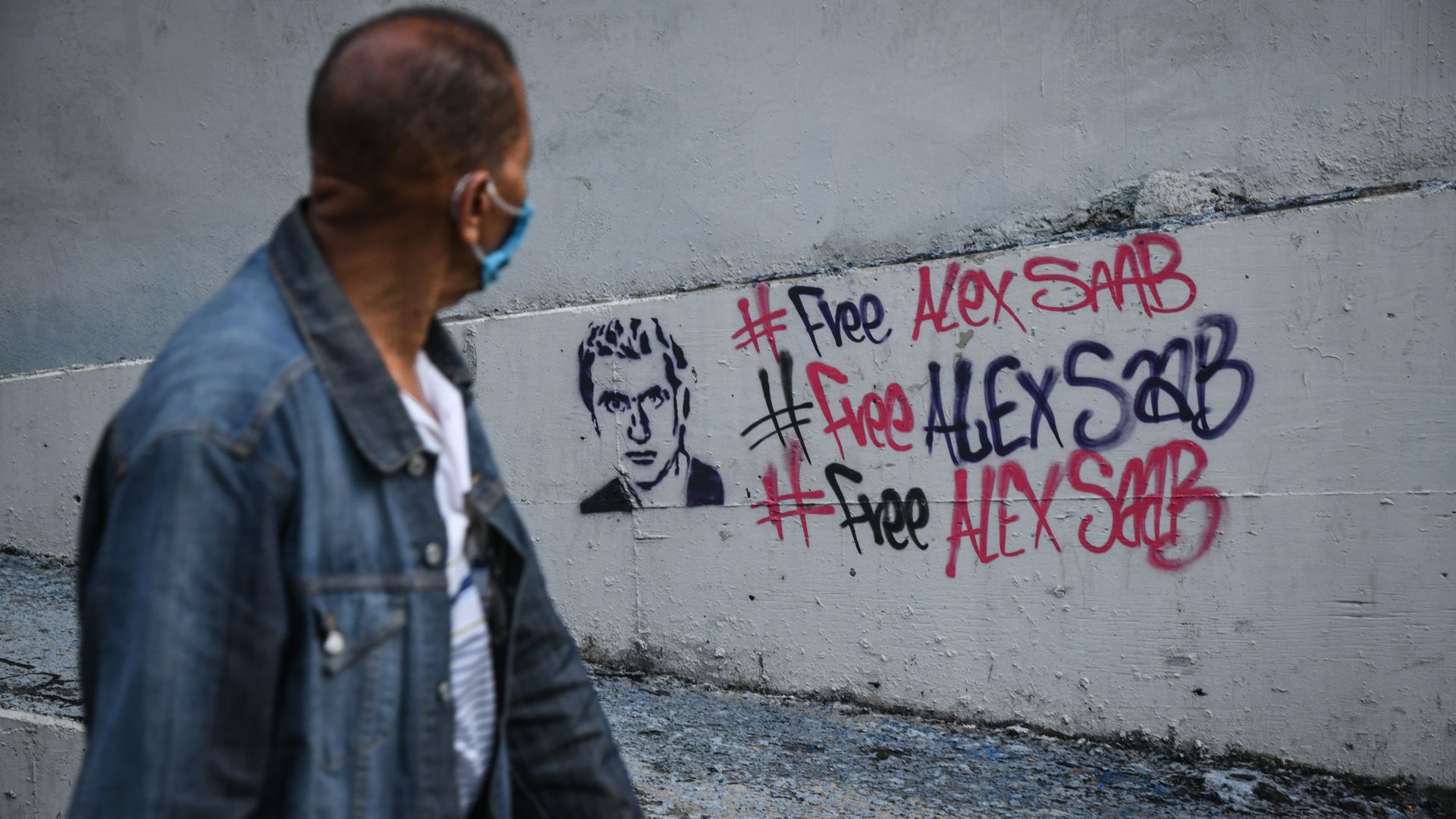 | | | Graffiti in support of Alex Saab in Caracas. Photo: Carolina Cabral/Bloomberg via Getty | | | | Venezuela's government called off negotiations with the opposition in response to the extradition of Alex Saab, a Colombian businessman and financial fixer for President Nicolás Maduro, from Cape Verde to face money laundering charges in Florida. - Security forces placed six U.S. oil executives under house arrest hours later, per AP.
- If Saab were to cooperate with American officials, it could potentially help them untangle the president's "economic web" and charge other Venezuelan government allies.
Go deeper. |     | | | | | | 6. What I'm reading: Leaving the yakuza |  | | | A photo purportedly of Yakuza members in 2005. Photo: Jiangang Wang/Contributor via Getty | | | | Life inside Japan's yakuza organized crime syndicates isn't what it used to be, and many former gangsters are seeking to go straight, the Washington Post's Michelle Ye Hee Lee and Julia Mio Inuma report. - "For years, the yakuza operated somewhat openly. It was monitored by police with the understanding that the yakuza would take care of petty crime on its turf and leave ordinary citizens alone."
- But as police increasingly cracked down on the yakuza's drug trafficking, money laundering and gambling rings, members began to defect in droves.
- One problem: "Members are often conspicuous, with full-body tattoos and pinkies amputated by the mob as punishment for wrongdoing." Some have found steady work outside the gangs, but most haven't.
Dive in. |     | | | | | | 7. Stories we're watching | 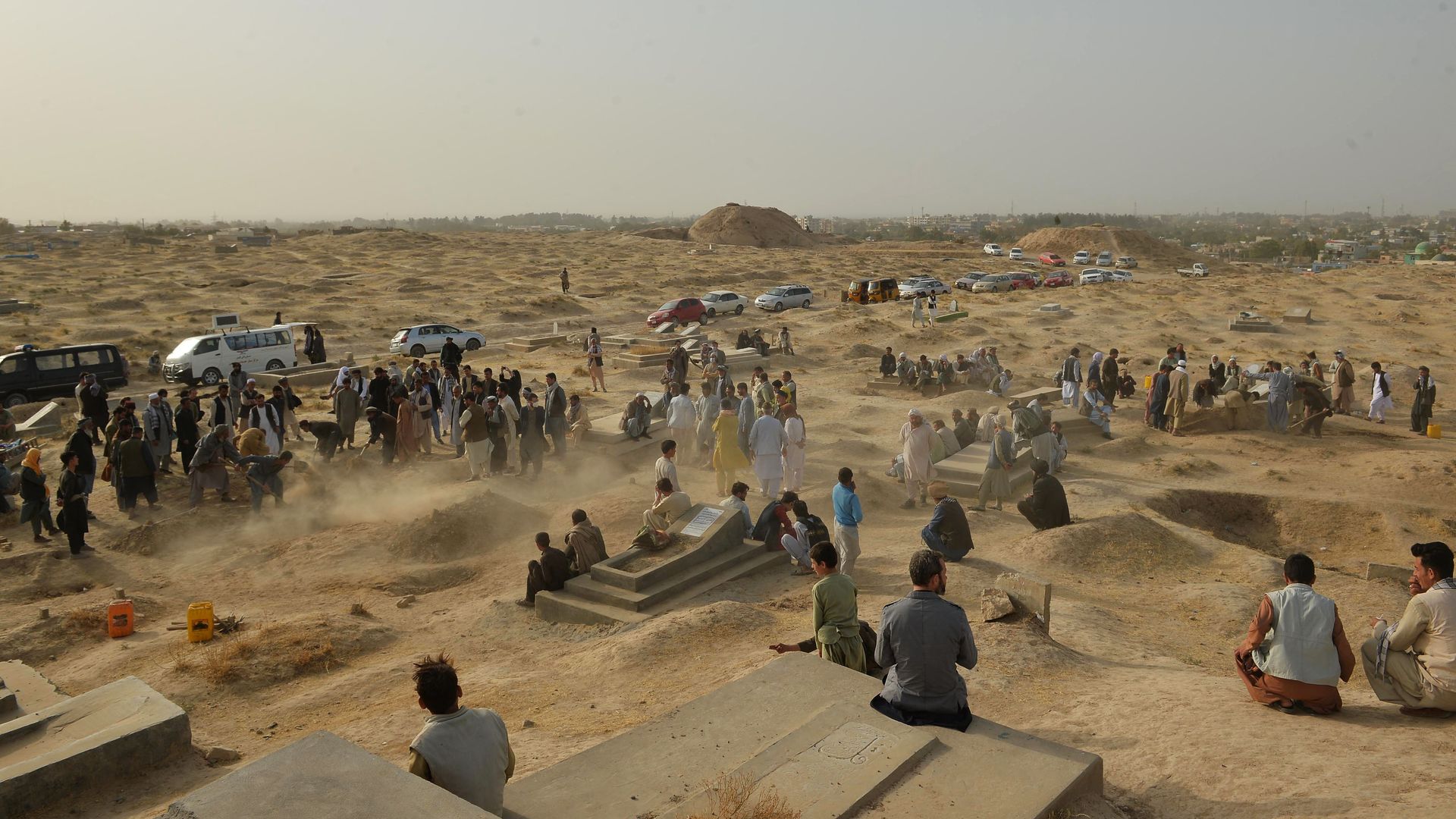 | | | Gathering at gravesites after a suicide bombing in Kunduz, Afghanistan. Photo: Hoshang Hashimi/AFP via Getty | | | - Colin Powell dies at 84
- Russia suspends mission to NATO over spy expulsions
- China's economic growth slows
- UN climate summit: Goalposts moving; Obama's going
- British MP David Amess murdered
- ISIS claims Kandahar bombing
- Activists disrupt Beijing Olympics flame lighting
Quoted: "Carmen Mola is not, like all the lies we've been telling, a university professor. We are three friends who one day four years ago decided to combine our talent to tell a story." — Three male TV writers who shocked the literary world by revealing that Carmen Mola, the pseudonym for a celebrated Spanish novelist, was their shared creation. |     | | | | | | A message from Equinor | | The energy transition is the defining opportunity of our time | | | 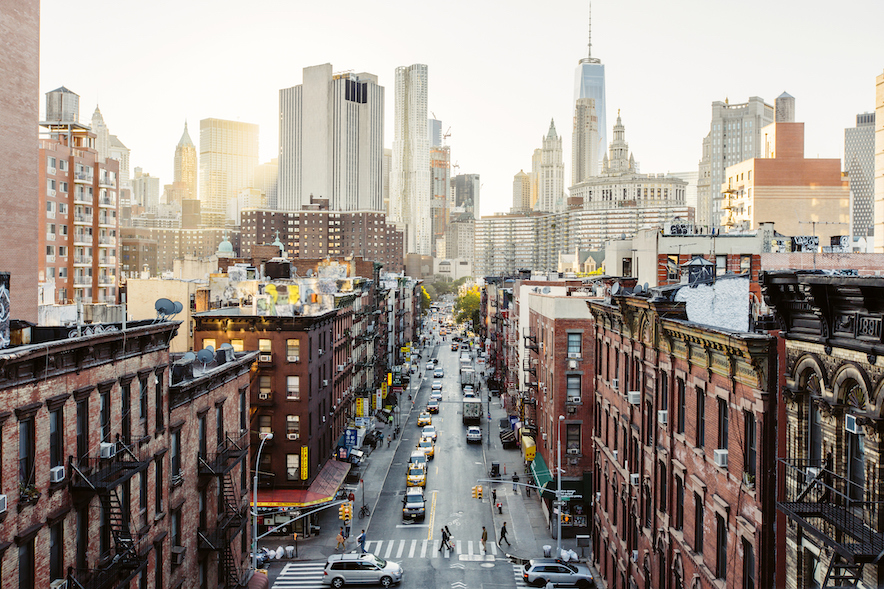 | | | | Equinor is accelerating the energy transition by growing our renewable energy portfolio and cutting greenhouse gas emissions. Through the Empire wind and Beacon Wind offshore wind developments we're planning to power 2,000,000 homes in New York with renewable energy. | | | | Answer: Elba, site of Napoleon's first stint in exile. |  | | It'll help you deliver employee communications more effectively. | | | | | | Axios thanks our partners for supporting our newsletters. If you're interested in advertising, learn more here.
Sponsorship has no influence on editorial content. Axios, 3100 Clarendon Blvd, Suite 1300, Arlington VA 22201 | | | You received this email because you signed up for newsletters from Axios.
Change your preferences or unsubscribe here. | | | Was this email forwarded to you?
Sign up now to get Axios in your inbox. | | | | Follow Axios on social media:    | | | | | |












No comments:
Post a Comment